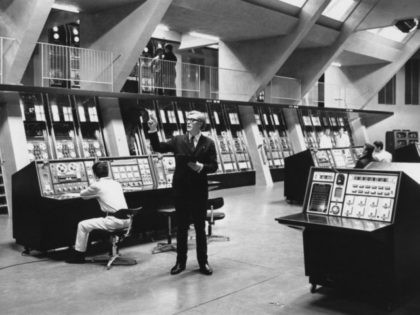Atlanta Fed’s GDP Tracker Jumps to 2.8% for First Quarter
The economy continues to defy expectations for a slowdown, casting doubt on the idea that the Fed will cut rates in the first half of this year.

The economy continues to defy expectations for a slowdown, casting doubt on the idea that the Fed will cut rates in the first half of this year.

The Atlanta Fed’s latest survey of business expectations shows inflation expectations unchanged while reports of current profitability deteriorate.

“We need to have a slowdown. There’s no question about that. But I do think that we’re going to do all we can at the Federal Reserve to avoid deep, deep pain,” Bostic said.

The economy is very close to a third straight quarter of contraction.

There’s not much chance of it returning to positive territory this month, meaning a second consecutive quarterly economic contraction is likely.

Consumer spending, manufacturing, and construction have all rolled over as inflation and interest rates drag down the economy.

It’s gotta be Putin’s fault, right?

The latest reading raises the odds that we could have a second quarter of economic contraction.

A new record high in inflation expectations.

The Atlanta Fed’s measure of business inflation expectations increased significantly in February.

Expectations for inflation hit their highest level since at least 2012.

A record number of businesses say they expect “very significant” increases in costs.

For a decade, businesses expected inflation to run just under two percent. Now they expect much bigger price hikes.

The Atlanta Fed president says it is becoming increasingly clear that the intense and widespread supply chain disruptions will not be brief.

The American public does not believe inflation will prove transitory.

Inflation expectations of U.S. businesses keep climbing and businesses see it sticking around, suggesting that it may turn out that the view that inflation would be “transitory” is what turns out to be transitory.

A survey of businesses in the Southeast indicates that inflation expectations dipped from a record high in July.

The Atlanta Fed’s real-time GDP estimate jumped to 10 percent on Monday following better than expected data on manufacturing and construction spending.

The Atlanta Fed’s realtime GDP estimate jumped to 9.5 percent on Wednesday, up from 4.5 percent a week ago.

The Atlanta Fed’s Business Expectations survey showed expectations for growth in capital spending rising for the third consecutive month.

The Atlanta Fed’s GDPNow forecasting model moved up on Thursday to indicate the economy growing at a 4.8 percent pace in the second quarter.

The GDPNow forecast has been climbing higher following the releases of good economic data. On May 25, the measure foresaw four percent GDP growth. This rose to 4.7 percent Thursday and ticked even higher on Friday following the better than expected jobs report for May.

Hard to believe, but we’re almost halfway through the second quarter of the year. That’s the point where it makes sense to start checking in on where the regional Fed banks’ forecasting models see GDP growth for the quarter.
